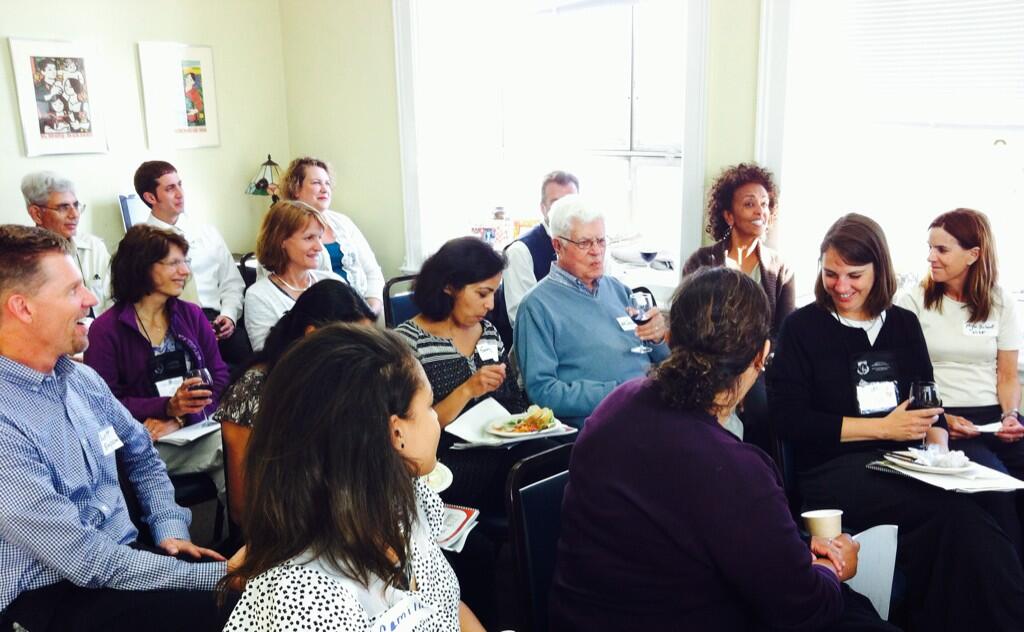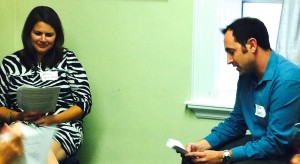Advising Students on Health Experiences Abroad
On June 26th, I collaborated on a workshop entitled “Beyond the Basics: Advising Students on Health Experiences Abroad,” led by Child Family Health International (CFHI) Executive Director Dr. Jessica Evert and Tricia Todd, MPH, Assistant Director of the University of Minnesota Health Careers Center. The workshop coincided with the National Association of Advisors for the Health Professions (NAAHP) Annual Conference, held this year in San Francisco. Advisors arrived at CFHI’s San Francisco headquarters in to a full house with over 20 attendees representing 15 different colleges and universities. Small Liberal Arts colleges from Maine were particularly well represented, with advisors from Bates, Bowdoin, and Colby College in attendance.
As a grad student of International Education Management, I was interested to observe the backgrounds represented amongst the attendees. Some were faculty in science departments, some staff from career development offices, and others from programs specifically geared towards global health. What everyone had in common was knowledge of issues relating to advising pre-health students, and all expressed worries regarding the growth of an “industry” to meet the rapidly growing demand from students seeking health-training programs abroad.
Health Students Doing Too Much, Too Soon – How to Choose Reputable Programs
The issue of the commodification of education abroad, which I was familiar with from graduate courses, took on greater significance when discussing health-related programs where issues of medical ethics and patient safety come into play. In such cases, not only are students being sold an education abroad “experience”, but unethical program providers tell students that they will be able to perform clinical work that exceeds their training and “change the world” through their work, effectively putting patients’ lives at risk.
Advisors were eager to discuss strategies for guiding students towards reputable programs and avoiding companies and experiences where students are encouraged to “do too much, too soon.” Case studies were presented, based on actual incidents from the field. Some were particularly alarming: undergraduates delivering babies, students conducting hospital rounds unsupervised, even instances of students scrubbing in for surgery! Unfortunately many students are under the erroneous impression that participating in this type of hands-on clinical experience will give them a leg-up in the competitive world of medical, nursing or other health professions school admissions. Part of the messaging to pre-health professions students therefore needs to focus on how performing clinical duties beyond what they are authorized to do here in the U.S. is highly unethical, and could jeopardize their own careers.

Before the evening was over, Dr. Evert, playing the roll of the advisor, and I, playing the part of a well meaning (but naïve) pre-med student, acted out an all too common scenario for the group. Fortunately, in our fictional advising session the student wasreceptive to ideas. The advisor convinces the student to re-examine motivations for wanting to go abroad, and suggests the right questions to ask when choosing a global health education program. The role-play emphasized the many tools available for students to examine their motivations for taking part in a health experience abroad. I think advisors in attendance left the CFHI – UMN Health Careers Workshop with new resources, a feeling of community, and a better sense of how to guide students to help them make better decisions for their global health education.
Special thanks to our guest blogger, CFHI Intern Alex Nichol, for authoring this post.
